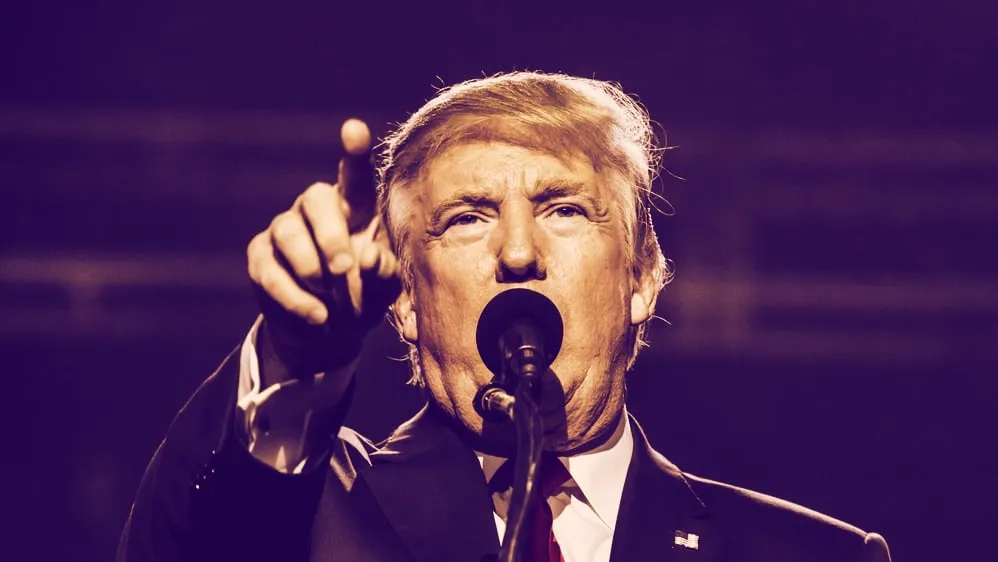In brief
- To help prop up the struggling US economy, the Trump administration and Federal Reserve have pumped trillions into the market.
- However, the US dollar (USD) continues to weaken against most other currencies, while Bitcoin has witnessed a dramatic recovery from its March 2020 crash.
- If the US dollar continues to falter, then Bitcoin's strength as a hedge might improve—but it likely isn't immune to a stock market crash.
Since March, US President Donald Trump’s administration, along with the Federal Reserve, has been working to prop up an economy devastated by the effects of the coronavirus pandemic.
Unlike many other economic superpowers, the United States has had to contend with an extended first wave of coronavirus infections, which saw it become the worst-affected country by total number of cases. As a result, the Trump administration and the Federal Reserve have had to go to extraordinary lengths to keep people working and boost spending.
The measures, which include cutting interest rates and injecting cash into the economy, could cause people to 'opt out' of a weakening US dollar (USD)—which, in turn, could fuel interest in Bitcoin (BTC) and other cryptocurrencies.
What the Fed Did
These efforts range from cutting interest rates down to near zero after a shock 1.5% reduction in March, to purchasing massive amounts of securities.
Overall, the Federal Reserve has injected $2.3 trillion into the market since March through its purchase of Treasuries and mortgage-backed securities, bringing its total assets up to $7.06 trillion.
At this rate of growth, and given that the US is still dealing with mass unemployment, there is a good chance that its balance sheet might continue to swell into Q4, and could potentially end the year at close to $10 trillion—its highest ever value.
There are also concerns that inflation might be set to go through the roof, as chair of the Federal Reserve Jerome Powell announced during his speech, entitled "New Economic Challenges and the Fed’s Monetary Policy Review", that the Fed will aim to achieve an average inflation of 2% over time—potentially allowing inflation to temporarily climb above 2% if the dollar weakens further.
The impact on Bitcoin
Despite initially collapsing by more than 50% between mid-February and mid-March this year as the stock markets suffered one of the worst sell-offs in recent history, the price of Bitcoin made a dramatic comeback in the second and third quarters—pumping to over $12,000, before dropping back down to just over $10,000 .
The US dollar, on the other hand, hasn't fared so well over the same period and has slipped against the euro (EUR), pound sterling (GBP), Japanese yen (JPY), Chinese yen (CNY), and most other major currencies since March.
As the world's primary reserve currency, a huge number of US markets can be considered correlated to the performance of the US dollar—including US stocks, real estate, and equities. However, Bitcoin has frequently been described as an uncorrelated asset that moves independently major stock indices, forex, and other financial markets. As a result, it is commonly seen as a hedge against a struggling US dollar—protecting holders from the adverse effects of inflation.
With the US dollar continuing to weaken, Bitcoin's strength as a hedge may continue to grow. This is a view shared by Simon Yu, the CEO and co-founder of crypto-powered microtasking platform StormX, who told Decrypt:
"With the federal government's insistence on printing more money and the Fed reiterating their intentions to maintain a 2%+ inflation rate, we should expect to see prices increase across all markets." Yu also went on to explain that Trump's fiscal policy might push the price of Bitcoin higher in the "near future".
On the other hand, Marshall Hayner, CEO and co-founder of crypto payments processing platform Metal, had the following to say: “The President has voiced extreme dissatisfaction with the Federal Reserve and may be looking to implement new standards to the dollar to protect it in a post-COVID-19 world.”
Hayner noted that this could include setting up a blockchain center for excellence, or a similar government body—which, in turn, would likely lead to a "renewed interest" in Bitcoin from the executive. He also argued that it could also lead to a "major push to create a US Digital Dollar CBDC to eliminate counterfeiting and increase transparency.”
That, in itself, could serve to boost Bitcoin; a report earlier this year by digital asset manager Grayscale argued that interest in CBDCs, or central bank digital currencies, could drive interest in Bitcoin by highlighting its value proposition. "Moving fiat currencies to digital infrastructure would highlight that Bitcoin is special not because it is digital," the report noted, "but because Bitcoin is a scarce, uncompromising, apolitical currency that is open for anyone to use."
In any case, if the Fed's new fiscal policy ends up backfiring—and tanking the stock market with it—there is a strong possibility it will also adversely affect Bitcoin. To what degree, however, remains unclear.

